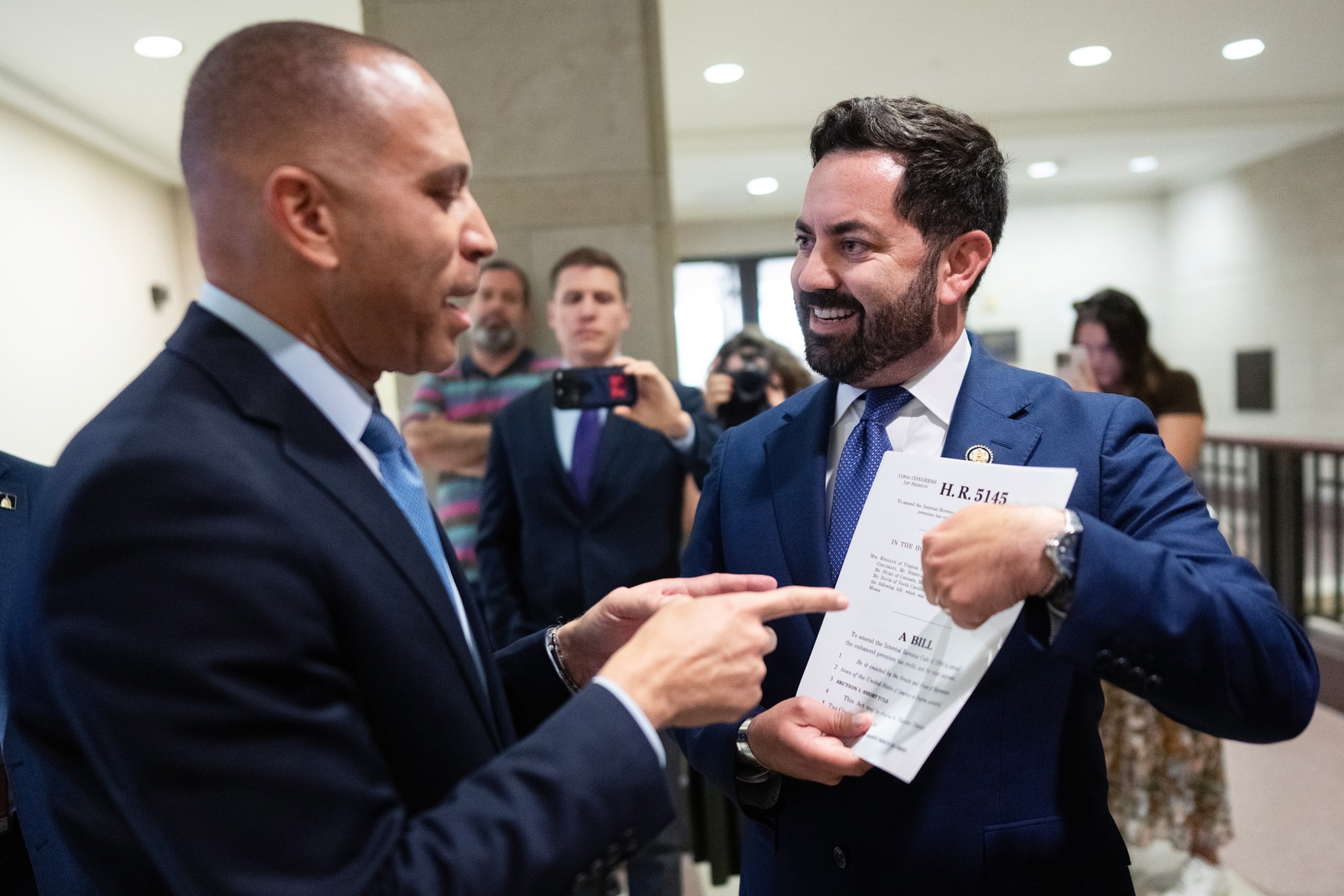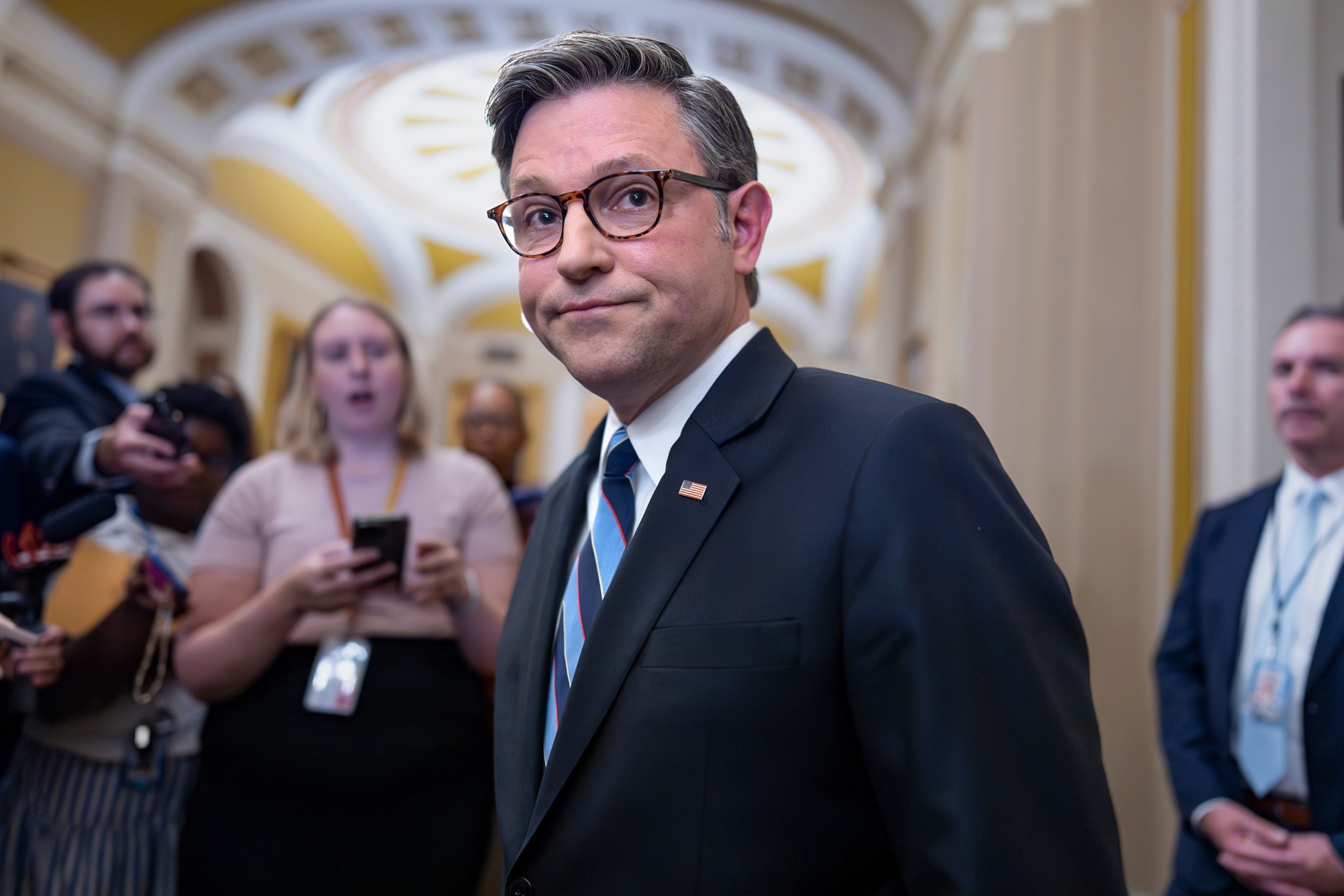As the federal government shutdown enters its 10th day, one major health care issue remains a sticking point: insurance subsidies.
Affordable Care Act (ACA) subsidies, or premium tax credits, help reduce or eliminate the out-of-pocket cost of monthly premiums for those who purchase insurance through the health insurance marketplace.
Eligibility for subsidies may include factors such as household income and geographic location.
The subsidies were part of the original Affordable Care Act passed during the Obama administration and were enhanced during the COVID-19 pandemic to increase the amount of financial assistance to those already eligible and expand eligibility to more people. They are scheduled to expire at the end of the year.
Republicans have said the pandemic-era expansions went too far and have tried to persuade Democrats to fund a temporary spending bill that does not address expiring ACA subsidies, with promises to discuss ways to continue the subsidies later.
House Speaker Mike Johnson, R-Louisiana, called the Dec. 31 deadline to extend the subsidies a long time away.
“That’s a December 31 issue,” he said during a news conference earlier this week. “There’s a lot of conversations, deliberations and discussions going on right now, even bipartisan among members about the necessary changes that would have to be made, pretty dramatic changes for that to even be considered on the floor. But look, I’m not going to predict the outcome of that.”
However, Democrats say that with open enrollment for ACA plans starting Nov. 1, not approving the subsidies could be detrimental to millions of American families.
“Democrats have said their position coming out of the shutdown period is that they would want to extend and make permanent these enhanced marketplace premium tax credits,” Melinda Buntin, a professor at the Johns Hopkins Bloomberg School of Public Health and the Johns Hopkins Carey School of Business, told ABC News.
“At the top of the list are these subsidies because they are so important and will directly impact the pockets of so many millions of Americans,” Buntin said.

Rep. Mike Lawler confronts House Minority Leader Hakeem Jeffries about signing a bill that would extend Affordable Care Act tax credits, after a House Democrats press conference at the Capitol Visitor Center on Oct. 8, 2025.
Tom Williams/CQ-Roll Call, Inc via Getty Images
Buntin said if open enrollment begins and these subsidies are not approved or loaded into enrollment systems, premiums will likely increase.
Estimates from the Congressional Budget Office suggest that, without an extension, gross benchmark premiums could increase by 4.3% in 2026 and 7.7% in 2027 for those with marketplace plans.
TO KFF analysis Last month it found that people who buy insurance on the marketplace and receive financial assistance would see their premiums increase by about 114% on average, from $888 in 2025 to $1,904 in 2026.
There is broad support for tax credits. A recent kff survey, which was presented just before the government shutdown on October 1, found that 78% of Americans support extending the enhanced tax credits, including more than half of Republicans and “Make America Great Again” supporters.
House Minority Leader Hakeem Jeffries on Thursday expressed the need to extend the tax credits, saying: “[U]Unless we expand the Affordable Care Act tax credits, tens of millions of Americans are about to experience dramatic increases in premiums, co-pays and deductibles of thousands of dollars a year.”
Buntin says this could affect many Americans, but particularly those who live in states where Medicaid was not expanded and buying insurance on the marketplace is their only option.
Naomi Zewde, a member of the UCLA Center for Health Policy Research and assistant professor of health policy and management at the UCLA Fielding School of Public Health, told ABC News that low-income families and working adults will be affected if the ACA subsidies are not approved.
“Mainly those who don’t get insurance through their job, who earn too much for Medicaid but not enough to pay [about] $600 or more per month for a plan with an investment of two to three thousand dollars deductible,” he said.
However, James Blumstein, distinguished university professor of constitutional law and health law and policy at Vanderbilt University School of Law, told ABC News that even if the subsidies expire and the Nov. 1 deadline hits, a deal could be reached to fix the issue retroactively.
He added that he believes Democrats and Republicans in Congress could also reach a deal that saves the ACA subsidies but does not maintain the full expansions that were offered during the pandemic.
“I think the Democrats’ influence will diminish,” he said. “Republicans have passed a continuing resolution to bring this issue back up in five or six weeks.”
Blumstein continued: “Democrats will have influence again in five or six weeks, and I think whether this falls into the new sign-up period or not, that can all be fixed in the deal. In other words, if time goes by, that can be overcome with subsidies that will come a little later.”
Earlier this week, President Donald Trump indicated that he was negotiating with Democrats on health care policy and was open to reaching a deal on health care subsidies in an attempt to reopen the government.
“We have a negotiation with the Democrats that could lead to good things, and I’m talking about good things regarding health care,” Trump told reporters in the Oval Office.
“If we made the right deal, I would make a deal. Sure,” Trump said, referring to reaching a deal to approve ACA subsidies.

House Speaker Mike Johnson joins a closed-door Senate Republican strategy session as the government shutdown heads into its second week, on Capitol Hill in Washington, Oct. 7, 2025.
J. Scott AppleWhite / AP
In a statement, Senate Minority Leader Chuck Schumer denied that the White House was negotiating with Democrats.
Trump later backed away from his willingness to reach a deal, writing on social media that he would work with Democrats as long as the government reopens first.
Democratic leaders have said they are unwilling to vote to reopen the government unless Republicans negotiate on health care demands, while Republicans have expressed an unwillingness to negotiate on health care policy unless the government is reopened, effectively a stalemate.
“Republicans say we should have what’s called a clean bill, just continue government operations as they were, without extending these subsidies, and then once we have that, we can go back and talk about things like extending the subsidies,” Buntin said. “So far Democrats are seen as unwilling to accept that, which I think represents a bit of a break in the normal process.”
He continued: “Democrats are seeing a political opening, because there are so many millions of people who depend on these subsidies to be able to afford health insurance, and there is nothing like a deadline to get something you want.”
A spokesperson for the Department of Health and Human Services told ABC News in a statement earlier this week that Democrats are to blame for the shutdown.
“Senate Democrats are choosing to keep the government closed, putting important health programs at risk. They should do the right thing and vote to reopen the government,” the statement read.





